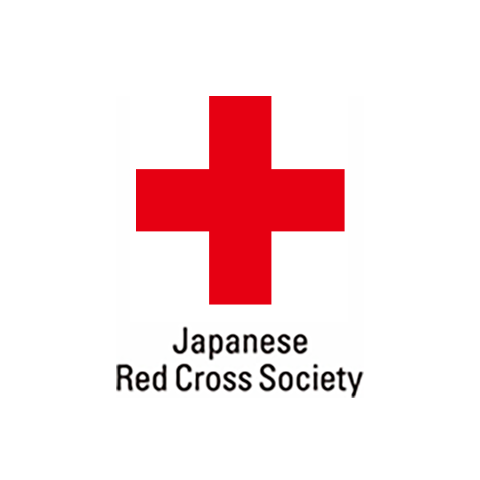140th Anniversary Japanese Red Cross Society

Photo with fellow group members who were dispatched in April 1941.
The 140-year of the Japan Red Cross Society (JRCS) history is a compilation of days that have been built up by JRCS staff and volunteers, always striving to extend their support at any spots. We asked people who were involved with nursing activities during wartime, international relief, domestic disaster relief, and the Youth Red Cross, about their thoughts at that time.
Among numerous stories in 140 years, we present a story of one nurse in war:
Wartime nurses' aide (1941-1945)
World War II
Value closeness as a person to the last breath
Masako Kume, a former JRCS relief nurse now living in Saga Prefecture, was born in 1920. She graduated from nurses' aide training school at the JRC Yamaguchi branch in 1941 and began working as a nurses' aide in April. She was dispatched to the Kahoku Taigen army hospital in north China as the 289th medical team from Saga Prefecture. She was subsequently assigned to the 101st Navy Hospital in Singapore and then to the hospital ship; Hikawa Maru as the 477th medical team. At the end of the war, she repatriated to Japan and provided aid to the Atomic bomb survivors in Iwakuni City in 1945. She subsequently worked as a nurse and as a nurse trainer.
A mother to soldiers
"As soon as I graduated from school, I received my call-up notice and was dispatched to China. At first, I couldn't get used to the hospital environment. For example, the rice cooked with barley was covered with flies, an unimaginable sanitation situation in Japan. Wounded soldiers were sent to the hospital from 7 PM to 9 PM every day.
What I can't forget was when I was responsible for severely injured soldiers in the hospital ward. As a nurses' aide, I would look at the photos of their family and girlfriends, have a little chat, along with taking care of them. So I was trying to give them moral support. Eventually, patients came to call me 'mother', while I was only early 20s! The only one stout-hearted man has never called me like that. But one day he finally called me 'mother' and asked me to serve him tea. When I served him the tea, he said, 'Pardon me, mother.' His condition was getting worse and worse, and he may have realized that his life would end shortly.
Patients who died were cremated in the hospital crematorium every day. At least I wanted to collect as many of my patients' bones as possible and put them into a funeral urn. Finally, this required me to pick up the bones by my hand. The Red Cross spirit I learned in school enabled me to do that."
NOTE:
A total of 960 nurses' medical team were dispatched from the beginning of the Sino-Japanese war until the end of World War II. A total of 33,156 nurses' aides provided relief support at local army and navy hospitals and on hospital ships.
JRCS Newsletter, May 2017




